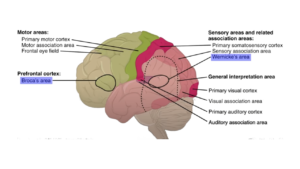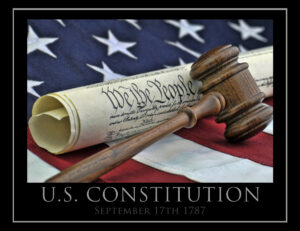Despite his age, I was saddened to learn of the passing of President Gerald Ford. He will probably be remembered for three things: being the only man who ever served as President of the United States without being elected either president or vice president (he was appointed Vice President and became president when Richard Nixon resigned), for ending the Vietnam War, and for pardoning Richard Nixon over the Watergate scandal. The latter even affected the former. Had he not pardoned Nixon, it is possible that Gerald Ford would have defeated Jimmy Carter, the relatively unknown former governor of Georgia, in 1976. Before the pardon, Ford enjoyed a 71 percent approval rating. After the pardon, his approval rating plunged to 36 percent and he was never able to recover. And, yet, maybe the country was ready for a new start, with a new president and the pardon really did not matter after all. Nevertheless, it was a decision he never second guessed.
In his inaugural address, President Ford said, “My fellow Americans, our long national nightmare is over. … Our Constitution works; our great republic is a government of laws and not of men. Here the people rule. But there is a higher power, by whatever name we honor Him, who ordains not only righteousness but love, not only justice but mercy. As we bind up the internal wounds of Watergate, more painful and more poisonous than those of foreign wars, let us restore the golden rule to our political process and let brotherly love purge our hearts of suspicion and hate.” He claimed he was thinking more about the nation than Nixon when he granted the pardon.
President Carter, who had been the beneficiary of the public’s reaction to the pardon, nevertheless understood the importance of the role his predecessor played in healing the nation. He began his inaugural address, “For myself and for our nation, I want to thank my predecessor for all he has done to heal our land.” Some 27 years later, Senator Ted Kennedy, who had originally disapproved of the pardon, awarded President Ford a “Profile in Courage” Award for his action and said, “Time has a way of clarifying past events, and now we see that President Ford was right.” President Ford also received a Presidential Medal of Freedom and a Congressional Medal of Honor. The man reviled for pardoning Nixon became revered as a man of honor and integrity.
It is only fitting that a blog about resilience honor a man who epitomized resilience. He was resilient in life — having been the longest lived former U.S. president (surpassing Ronald Reagan by a little over a month). He was resilient in politics, having won a House seat in 1948 rising eventually to minority leader in 1963 and serving in that capacity until being appointed vice president. History will probably judge Ford kindly. He assumed the presidency in a time of turmoil. Of those times, the Washington Post wrote:
“Ford had become vice president Dec. 6, 1973, two months after Spiro T. Agnew pleaded no contest to a tax evasion charge and resigned from the nation’s second-highest office. The former Maryland governor was under investigation for accepting bribes and kickbacks. In the 2 1/2 years of his presidency, Ford ended the U.S. involvement in the war in Vietnam, helped mediate a cease-fire agreement between Israel and Egypt, signed the Helsinki human rights convention with the Soviet Union and traveled to Vladivostok in the Soviet Far East to sign an arms limitation agreement with Leonid Brezhnev, the Soviet president. Ford also sent the Marines to free the crew of the Mayaguez, a U.S. merchant vessel that was captured by Cambodian communists. On the domestic front, he faced some of the most difficult economic conditions since the Great Depression, with the inflation rate approaching 12 percent. Chronic energy shortages and price increases produced long lines and angry citizens at gas pumps. In the field of civil rights, the sense of optimism that had characterized the 1960s had been replaced by an increasing sense of alienation, particularly in inner cities. The new president also faced a political landscape in which Democrats held large majorities in both the House and the Senate. But Ford’s overriding priority was ending the constitutional and political crisis known as Watergate. It had begun June 17, 1972, when five operatives of Nixon’s reelection campaign were caught breaking into Democratic National Committee headquarters in the Watergate office building.” [Gerald R. Ford, 93, Dies; Led in Watergate’s Wake,” by J.Y. Smith and Lou Cannon, 27 December 2006]
Chevy Chase became famous characterizing Gerald Ford as a bumbling, incompetent president on Saturday Night Live, but nothing could have been further from the truth. President Ford was extremely athletic — having received offers to play professional football from both the Green Bay Packers and Chicago Bears. He received a law degree from Yale, was honored by the Junior Chamber of Congress, served with distinction in the Navy during the Second World War, and was named by correspondents as one of the ablest Congressmen to have served in Washington. President Ford was guided by an inner moral compass that seems to be missing in many of today’s leaders. The Post article notes that Henry Kissinger, in his third volume of memoirs, Years of Renewal, published in 1999, offered this assessment of the former president:
“‘With Ford, what one saw was what one got. Providence smiled on Americans when — seemingly by happenstance — it brought forward a president who embodied our nation’s deepest and simplest values.’ In a passage on present-day politics, Kissinger drew an implicit distinction between Ford and subsequent White House occupants. ‘The modern politician is less interested in being a hero than a superstar,’ he wrote. ‘Heroes walk alone; stars derive their status from approbation. Heroes are defined by inner values, stars by consensus. When a candidate’s views are forged in focus groups and ratified by television anchorpersons, insecurity and superficiality become congenital. Radicalism replaces liberalism, and populism masquerades as conservatism.’ In Kissinger’s view, Ford was a leader in the heroic mold. … Truman, Ford used to say, ‘had guts, he was plain-talking, he had no illusions about being a great intellectual, but he seemed to make the right decisions.’ Many would say the same of Gerald Rudolph Ford.”
The late President was quick to laugh and never took himself too seriously. He was fond of noting that “he was a Ford and not a Lincoln.” In a fitting tribute, President Bush said of President Ford:
“With his quiet integrity, common sense, and kind instincts, President Ford helped heal our land and restore public confidence in the presidency. The American people will always admire Gerald Ford’s devotion to duty, his personal character, and the honorable conduct of his administration.”




